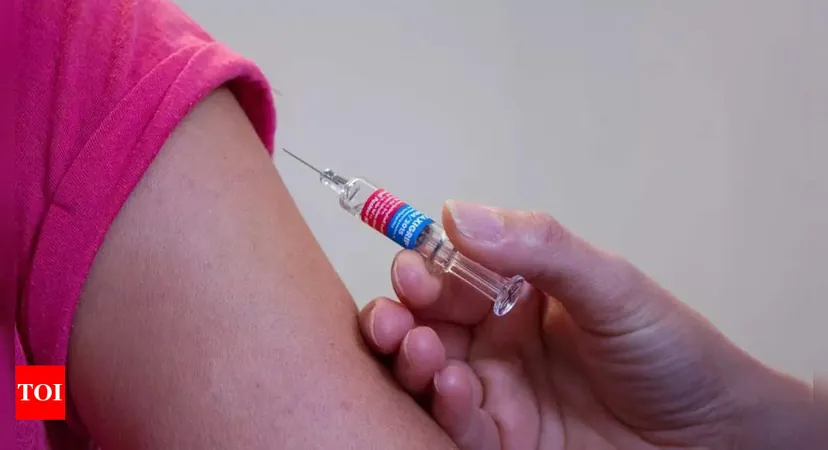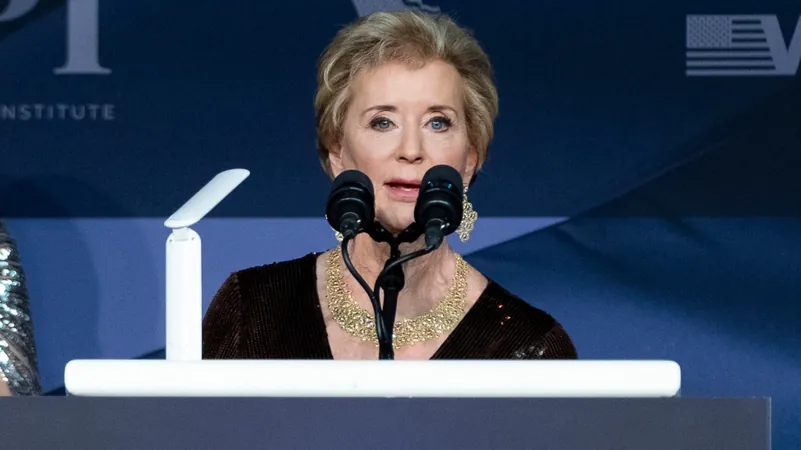
UK's Controversial Decision to Halt Free Covid Vaccines for Pregnant Women: What It Means for Maternal and Infant Health
2024-11-21
Author: Olivia
Introduction
In a shocking announcement, the UK's Joint Committee for Vaccination and Immunisation (JCVI) has revealed plans to discontinue free Covid-19 vaccinations for pregnant women starting in the spring of 2025. This decision has ignited widespread concern among healthcare professionals and expectant mothers alike, as it appears to underestimate the ongoing risks associated with Covid-19 during pregnancy.
The Justification Behind the Decision
While the committee cites the absence of recorded Covid-related pregnancy deaths over the past 18 months as the rationale behind this policy shift, they seem to overlook essential scientific evidence highlighting the potential dangers of Covid-19 for pregnant women and their unborn children. Studies have consistently shown that expectant mothers are at an increased risk of severe complications, including hospitalization, if they contract Covid-19. Moreover, severe illness from the virus can lead to further complications such as miscarriage and stillbirth.
Importance of Vaccination During Pregnancy
Vaccination during pregnancy has been vital in mitigating these risks. Recent research has illustrated that the Covid vaccines provide crucial protection, not only safeguarding mothers but also significantly lowering the risk of adverse outcomes for newborns. Immunization during pregnancy helps in building a reservoir of antibodies that mothers can pass to their babies through the placenta and into breast milk, offering an added layer of defense during their most vulnerable early months.
Ongoing Threats and Emerging Variants
Furthermore, it is essential to recognize that while the newer variants of the virus may present lower immediate risks, they are not entirely benign. The potential for unexpected outbreaks or the emergence of more virulent strains of the virus poses an ongoing threat that cannot be ignored. Vaccinating pregnant women continues to be a fundamental strategy in reducing severe illness, and the decision to halt free vaccines may neglect the broader implications for public health.
Comparative Insights from the United States
In the United States, data has revealed alarming trends; infants hospitalized with Covid-19 predominantly came from unvaccinated mothers. Babies under six months are particularly at risk, emphasizing the importance of vaccination in protecting this vulnerable demographic. The cessation of free vaccinations in the UK could inadvertently lead to an increase in Covid-related complications among infants, potentially facing long-term health challenges.
Contradiction and Urgent Call for Action
The JCVI's current stance appears to contradict established data and the collective health of pregnant women and newborns. With vaccination rates dropping in certain demographics, more engagement and education around the importance of Covid vaccines during pregnancy are crucial. Pregnant women must remain vigilant in considering vaccination to promote their safety and the health of their babies.
What Lies Ahead? Possible Consequences of the Policy Change
The implications of the UK's decision to stop offering complimentary Covid vaccines to pregnant women are profound. This policy not only jeopardizes maternal health but also raises concerns about the wellbeing and development of infants in the critical early months of life. It begs the question—will the government revisit its decision in light of emerging evidence and feedback from the medical community?
Conclusion
The ongoing dialogue surrounding Covid-19 vaccinations and pregnancy must be maintained to ensure that future policy decisions prioritize the health and safety of mothers and their children. Expecting mothers are advised to consult healthcare providers about the latest vaccine guidelines and to be proactive in protecting their health amidst changing public health strategies. As the UK inches closer to this decision, the collective voice of healthcare professionals might be the key to safeguarding maternal and infant health in the face of a shifting Covid landscape.









 Brasil (PT)
Brasil (PT)
 Canada (EN)
Canada (EN)
 Chile (ES)
Chile (ES)
 España (ES)
España (ES)
 France (FR)
France (FR)
 Hong Kong (EN)
Hong Kong (EN)
 Italia (IT)
Italia (IT)
 日本 (JA)
日本 (JA)
 Magyarország (HU)
Magyarország (HU)
 Norge (NO)
Norge (NO)
 Polska (PL)
Polska (PL)
 Schweiz (DE)
Schweiz (DE)
 Singapore (EN)
Singapore (EN)
 Sverige (SV)
Sverige (SV)
 Suomi (FI)
Suomi (FI)
 Türkiye (TR)
Türkiye (TR)